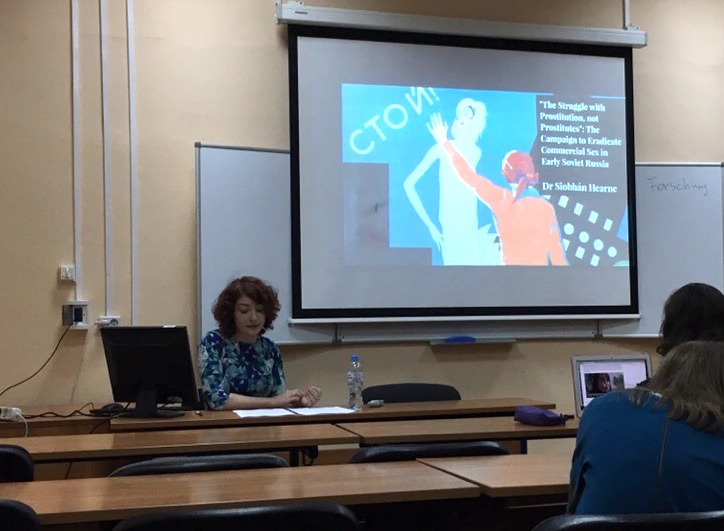Siobhan Hearne «"The Struggle with Prostitution, Not Prostitutes": The Campaign to Eradicate Commercial Sex in Early Soviet Russia»

This presentation focused on the development of the Soviet campaign to 'struggle with prostitution' (borŌĆÖba s prostitutsiei) from its inception in 1918 until the early 1930s. The┬ĀSoviet state defined prostitution as a predominantly economic problem, resulting from the undervaluation┬Āof female labour in┬Āthe pre-revolutionary period. Prostitution was an unwanted hangover from the capitalist past, which would be eradicated once women's social, political┬Āand economic equality had been achieved through socialism.
┬Ā
Interdepartmental commissions were established to address the social and economic causes of prostitution, as well as to develop strategies for reforming former prostitutes┬Āinto conscious and productive Soviet citizens. However, the persistent stigmatisation of women who sold sex, coupled with┬Āthe economic turbulence of the 1920s, meant that the campaign to eradicate commercial sex┬Ālargely fell flat. As the 1920s drew to a close, fewer voices were left calling for the reform of former prostitutes, and demands for their repression increased in tandem with official appeals to intensify the class struggle and rid society of groups deemed to be dangerous. This talk traced the┬Ācompeting narratives of liberation and limitation that ran throughout the early Soviet 'struggle with prostitution', and analysed the multiple reasons behind why the campaign was so unsuccessful.┬Ā
┬Ā
Dr Siobh├Īn Hearne┬Āis a postdoctoral researcher at the University of Latvia. Her research focuses on the history of sexuality in the Russian Empire and the Soviet Union. She received her PhD from the University of Nottingham in 2017 for a thesis on female┬Āprostitution in the late Russian Empire. She has published articles on the Soviet campaign to eradicate venereal diseases in the 1920s (Social History); on prostitution in RussiaŌĆÖs First World War (Revolutionary Russia); and on lower-class peopleŌĆÖs perceptions of sexuality, moral decline, and┬Āurbanisation in the late Russian Empire (Kritika).┬Ā┬Ā